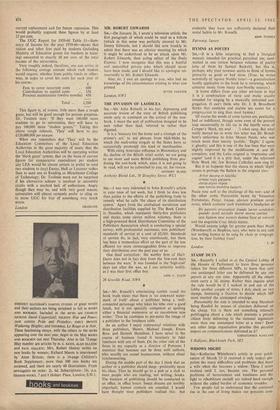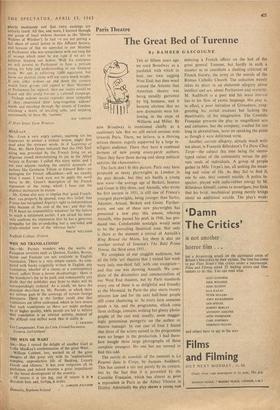WIDOWS MIGHT
SIR,—Katharine Whitehorn's article in your publi- cation of March 23 (I received it only today) pin- points the many difficulties and problems that beset a wife when she becomes a widow. These 1 never realised until I, too, became one. The personal problems of bereavement and loneliness and the fight to rehabilitate oneself are indeed hard enough without the added burden of economic troubles.
Few people fail to understand that the continual rise in the cost of living makes our pensions coin-
pletely inadequate and that extra earnings are unfairly taxed. All this, and more, I learned through our group of local widows (known as the 'Merrie Widows of Wi'ndsor'). In fact -7e are not getting a fair share of social justice in this Affluent Society, and because of this we appealed to our Member of Parliament who was sympathetic with our long list of wrongs which must be put right if we are to continue keeping our homes. With his assistance we will present to .Parliament in June a petition asking for help and understanding Of our financial needs. We aim at collecting 5,000 signatures, but know ow petition alone will not carry much weight. If only othei widows up and down the country would form groups and appeal to their Members ot Parliament for support. then our voices would be , heard and this could become a i.ational campaign.
Perhaps widows would engendel more sympathy , it they . resurrected their long-forgotten widows' weeds and marched through the streets of London, clutching a bottle of smelling salts, and stopping occasionally to have the 'vapours.'
RAF EAFFLER
17 Huth Street. Eton Wind/so,



































 Previous page
Previous page